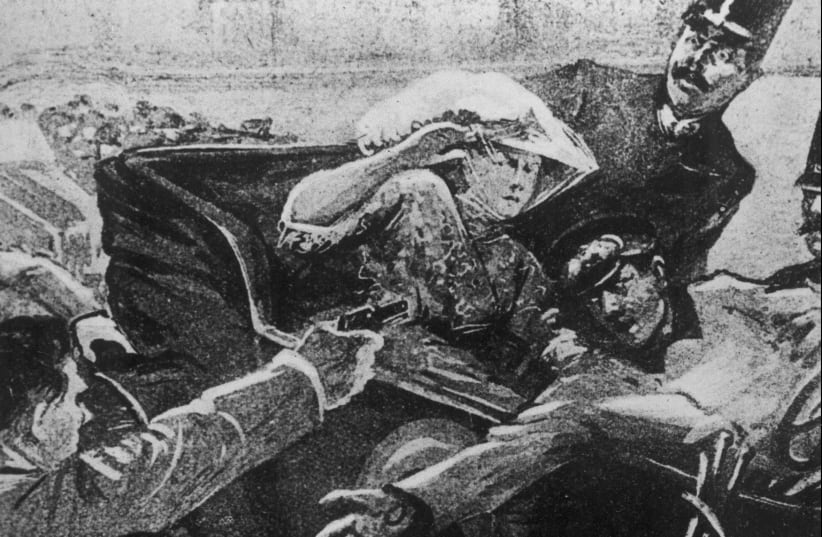The assassination itself took place in 1914 in Sarajevo, now the capital of Bosnia and Herzegovina. The plot to kill the archduke was concocted by members of the nationalist Young Bosnia society that wanted to unify Bosnia with Serbia, and allegedly had the involvement of the secret Serbian organization known as the Black Hand.
The attack itself did not go according to plan, and only succeeded by chance when the archduke's driver took a wrong turn and ended up in front of the now infamous assassin Gavrilo Princip, who shot the archduke and his wife.
While the assassination became the ultimate spark of the war – as Austria issued an ultimatum to Serbia, leading to Serbia's ally Russia declaring war on Austria, prompting Germany's intervention – it merely ignited an already tense situation in Europe.At the time, the military arms race between Germany and the United Kingdom, conflicting imperialist ambitions between the great powers, a tense web of alliances and an ethnic powder keg in the Balkans all set the stage for what would become one of the bloodiest conflicts in human history.
The war raged across every continent in the Old World and saw the eventual collapse of four old empires: Tsarist Russia, Germany, Austro-Hungary and the Ottoman Empire. It also saw the world simultaneously battle the deadly Spanish Flu pandemic and saw the United States emerge as a major power.
Just five years after the archduke's assassination, the event that started World War I, the Treaty of Versailles was signed – on June 28 – ending the war.
Despite the armistice having been signed on November 11, 1918 – which is remembered worldwide as the end of the war – the treaty itself was only signed in June of 1919, and it was specifically meant to end the war with Germany, whose allies had all signed separate treaties.
The treaty contained provisions that were deemed controversial, such as the infamous "War Guilt" clause that forced Germany not only to pay reparations, but make several territorial concessions and commit to a significant disarmament of the German military.
The treaty was one of the factors that many credit to the eventual rise of Adolf Hitler and the Nazi Party, and the start of the far bloodier and even more destructive World War II.
